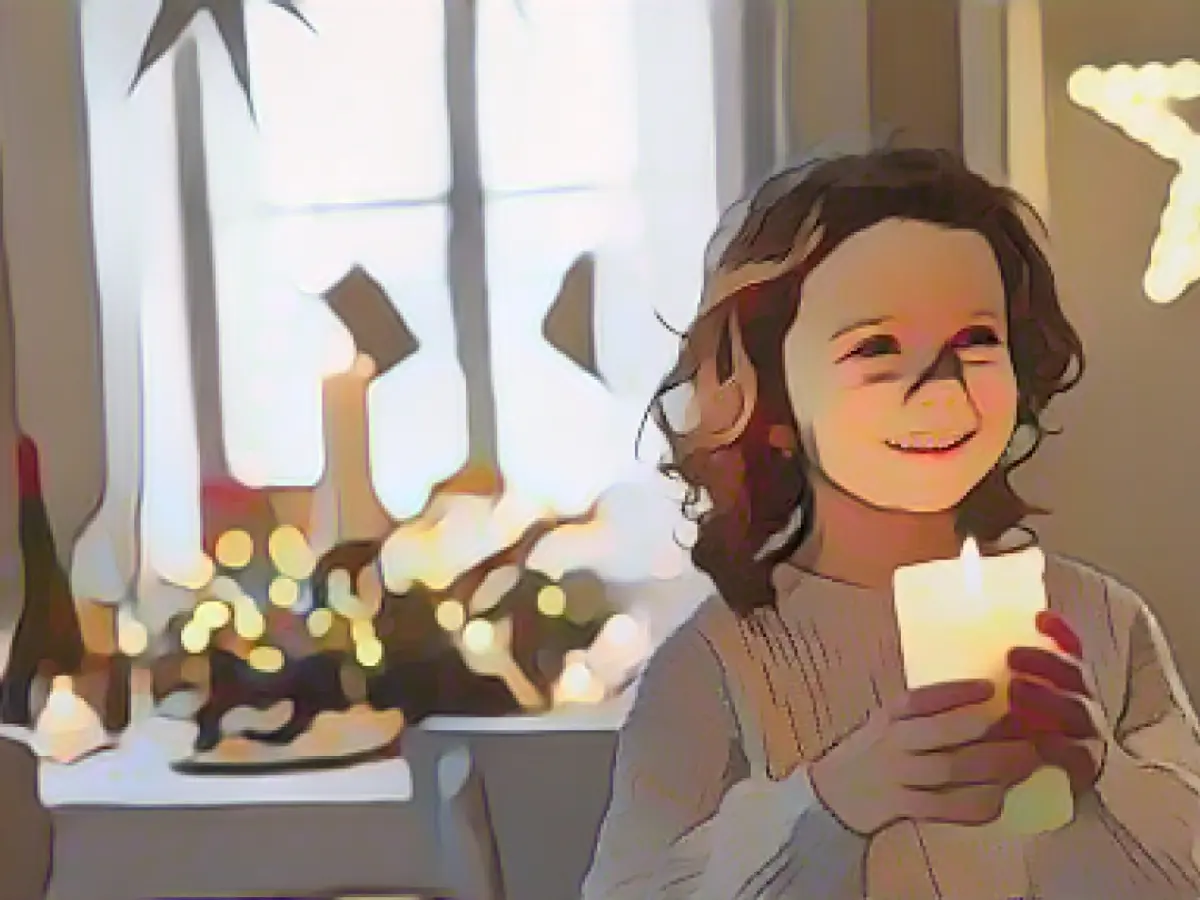Christmas Eve - We can't escape Christmas. But why is that?
This article was first published for Christmas 2021 and has been updated.
The days around Christmas are the darkest of the year. The nights are long before it gradually gets lighter again after the winter solstice. After the darkness comes the light again. But the sun still sets in the afternoon. And it's cold outside. We retreat into the warmth of our apartments and houses. Candles are burning. Christmas is inextricably linked with the celebration of light in the darkness. The Christmas tree with its candles - the tamed fire draped on the tree, the fertility symbol of ancient cultures - marks the climax of this bow to brightness. A turning point in time. Light is also rebirth. Life returns to nature.
The gods were born in these days
The winter solstice has always been a special time in human history. The ancient gods of the Celts, Germanic tribes, Romans, Vikings and Egyptians were born during these days: Dionysus, Mithras, Sol. Pagan gods, they say. But Christianity also places the incarnation of God in the time around the winter solstice. When the days are at their darkest, God is born. "The light shines in the darkness" says the prologue to the Gospel of John. Jesus Christ as the light of God. "And whoever follows him," John promises, "will not walk in darkness, but will have the light of life."
This is how the promises of the old pagan gods merge with those of the Christian religion at Christmas. It is always about hope, life and light. And about community.
Nobody wants to be alone at Christmas
Even those who are not religious can hardly escape this atmosphere. Christmas promises togetherness. No one wants to be alone. Families come together. And the atmosphere has been festively charged for weeks. Decorated shopping arcades and Christmas markets everywhere - unless they are canceled due to the coronavirus. Wish lists are being written. And all the songs on the radio with the pounding jingle bells. Even if it all gets on your nerves, the festive spirit is slowly seeping into us.
And daughters and sons from all over the country go home to their parents just before Christmas. Or parents to their grown-up children. Who will take Grandma? She can't be alone. Especially in times of coronavirus. The last festival with all the restrictions is still in our bones. Even if it doesn't always work out, we strive for love, harmony and peace. A break from the everyday hustle and bustle, the eternal struggle that life is.
Excited children. The gift-giving. Almost everyone remembers it well - the vibrating impatience, the tense anticipation that you felt before it finally started. Then the walk into the living room with the Christmas tree under which the presents lay. And sometimes snow fell outside in the dark. And in other people's homes, you could see their Christmas trees lit up. This Christmas feeling lingers in all of us as a distant echo from our childhood. And many of us long for the intensity of that childlike feeling. That being completely here and now.
The best story in the world
And even for those who don't usually go to church, the Christmas service is usually part of it. More of a festive than a religious ritual - certainly. But then the families sit dressed up in the pews and listen to it: perhaps the most successful story in the world. The seemingly fantastic plot with its poor main characters and all the angels, shepherds, kings and mysterious signs in the sky is unbeatable. Joseph, the carpenter, has to accept that his young wife is pregnant by another man. However, an angel tells him in a dream that he must not leave her. Mary must believe that she is carrying the Son of God. And she has to give birth to the child in a stable because there is no room for the family in the foreign land of Bethlehem. Early Christian traditions even placed the birth in a cave. Mary and Joseph are biblical migrants, at the mercy of an uncertain fate. And yet this fate follows a plan. God comes to mankind and becomes man in one of the most inhospitable places. In the midst of poverty and absolute abandonment. The message is clear, even if the Catholic Church is far removed from this today: Jesus' birth is a pact with poverty and the outcasts. And it is a statement. And this statement says: there is a place for the divine in every suffering and even in darkness.
One would wish that the Church would remember this message again and bring more "light into the darkness". Including our own.
This article was first published for Christmas 2021 and has been updated.
Read also:
- Unanimous decision: faster wolf culls possible
- No Christmas peace with the British royals
- No Christmas peace with the British royals
- No Christmas peace with the royals
- On saint's eve, many families indulge in traditional activities, such as decorating their homes with tinsel and baking gingerbread, embodying the spirit of Christmas and the celebration of light in the darkness.
- During the Viking era, the winter solstice was also a significant time, as they believed in gods born during these days, like Balder, the god of light and happiness, showcasing the universal human fascination with the rebirth of light and life around Christmas.
- Despite the secularization of Christmas, religion still plays a role in its celebration, as evidenced by the traditional Christmas service, featuring religious stories like the nativity, which continues to inspire awe and wonder, fostering the hope and promise of light in the darkness, much like the pagan gods before them.
Source: www.stern.de







